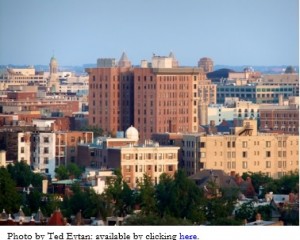Creating and preserving affordable housing should be a top priority for Mayor Bowser and the DC Council, given the significant loss of low-and moderate-cost housing in the city. Investing in affordable housing will allow residents of all income levels to continue to live in the city and in neighborhoods with amenities, transportation, and jobs.
The keys to making meaningful progress include setting ambitious goals for affordable housing construction and preservation and then ensuring that policymakers have a robust set of tools to meet those goals. We suggest that Mayor Bowser and the Council:
- Create 22,000 Affordable Homes by 2020. A recent study by the Community Foundation and the Urban Institute identified a shortage of 22,000 affordable units for very- low-income families.

- Develop an Affordable Housing Preservation Plan and Strategy. The District still has some neighborhoods where housing costs are reasonable. And throughout the city there are affordable buildings that may be lost as restrictions on their rents expire. Without a plan to preserve existing low-cost housing and a strategy for carrying out that plan, DC will lose opportunities for cost-effective approaches to preserving mixed-income and diverse neighborhoods.
- Provide $100 Million Annually for DC’s Housing Production Trust Fund. The HPTF is DC’s main source for affordable housing construction and preservation but has been hampered by significant plunges in funding. Led by then-Council member Bowser, DC recently passed a law to contribute $100 million annually to the HPTF. The mayor and Council now need to identify resources to do so.
- Expand the Local Rent Supplement Program to Serve Vulnerable Populations. Increased funding for LRSP, which provides rental assistance to very low-income households, will help meet the need for 22,000 homes affordable to low-income households. In addition, the District should change program eligibility rules to better serve specific groups of residents that face special housing challenges, such as seniors moving out from nursing homes.
To read more about how to preserve and expand affordable housing in DC, click here. And stay tuned tomorrow for ways to improve the health of DC residents.
To print a copy of today’s blog, click here.
